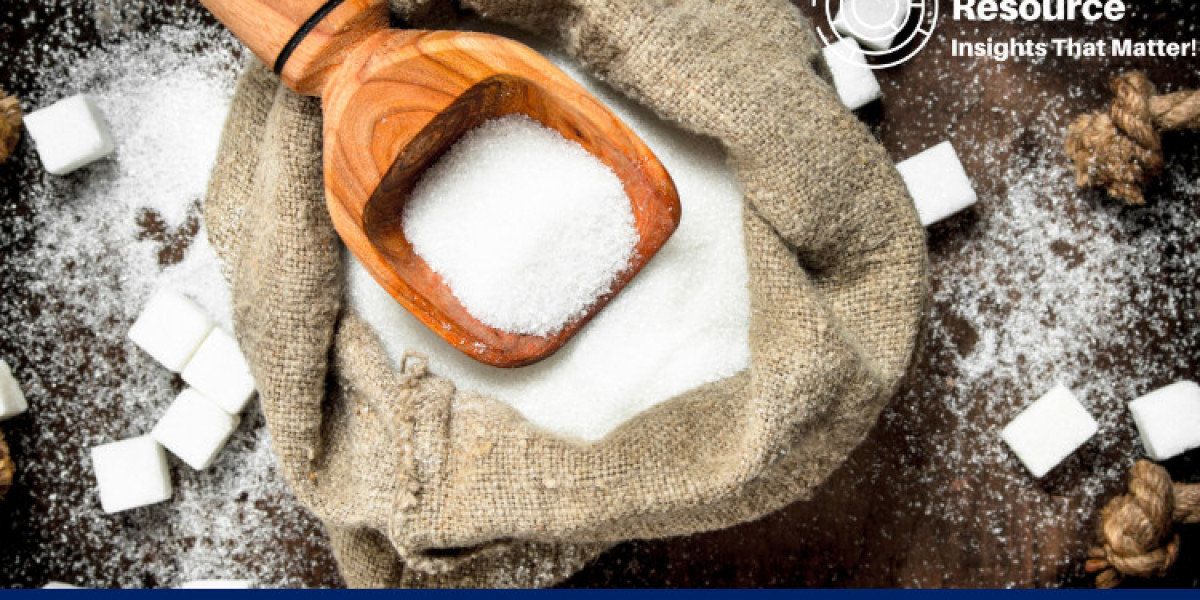In the world of food and beverage production, refined sugar is an essential ingredient. It’s widely used across industries for sweetening, flavor enhancement, and preservation, making it a staple in kitchens and manufacturing plants alike. Understanding the production costs of refined sugar is crucial for any company looking to maximize profitability in a competitive market. Procurement Resource is here to support these goals with data-driven insights through our Refined Sugar Production Cost Reports, providing detailed information to help businesses optimize their production processes and maintain a competitive edge.
Why Refined Sugar is Important
Refined sugar, mainly produced from sugarcane or sugar beet, is essential in many industries beyond just food and beverage. Its versatility makes it valuable in pharmaceuticals, cosmetics, and even biofuel production. Refined sugar’s primary uses include flavoring, preservation, and texturizing in food and beverages, as well as acting as a fermentable carbohydrate in biofuel production. As demand for refined sugar remains strong, especially within the food sector, companies must manage production costs effectively to maintain a strong market position.
Request a Free Sample for Refined Sugar Production Cost Reports – https://www.procurementresource.com/production-cost-report-store/refined-sugar/request-sample
Key Factors Influencing Refined Sugar Production Costs
Refined sugar production involves various cost factors. By analyzing these elements, companies can find areas for cost efficiency and process optimization. Here’s a breakdown of the main factors that affect the production cost of refined sugar:
1. Raw Material Costs
The primary raw materials for refined sugar production are sugarcane and sugar beet. These crops’ prices can vary based on regional growing conditions, seasonal harvests, and climate factors. Weather, pest outbreaks, and local agricultural policies also play a role in the availability and price of these crops. For producers, sourcing high-quality raw materials at competitive prices is essential to keeping overall production costs manageable.
2. Energy and Fuel Costs
The process of refining sugar involves extracting, purifying, and crystallizing sugars, which requires significant amounts of energy. Sugarcane and sugar beet are processed in large industrial facilities that consume electricity, steam, and fuel. Energy costs are often influenced by global oil prices, regional electricity rates, and seasonal energy demand. Efficient energy management and the use of alternative or renewable energy sources can help reduce production expenses over the long term.
Read the Full Report – https://www.procurementresource.com/production-cost-report-store/refined-sugar
3. Labor and Operational Costs
Labor costs are a key component in the production of refined sugar, especially for tasks such as harvesting, operating refining equipment, and quality control. These costs vary by region, as wages and labor availability differ widely. Additionally, maintaining a skilled workforce to operate machinery and ensure efficient processes is essential. Automation, when possible, can help reduce labor costs and increase productivity in refining operations.
4. Equipment and Maintenance
Sugar refining requires specialized equipment, including crushers, clarifiers, evaporators, and centrifuges, all of which need regular maintenance to function efficiently. These maintenance costs are necessary to avoid downtime and ensure smooth operations, but they add to production expenses. Investing in advanced equipment that improves efficiency or reduces waste can be a strategic way to control costs over time, although it requires upfront capital.
5. Environmental and Regulatory Compliance
Sugar production and refining generate by-products, such as bagasse (the fibrous residue from sugarcane) and waste water, which must be managed according to environmental regulations. Compliance with waste disposal, water usage, and emission standards is essential and often requires additional investments in waste management systems and pollution controls. Failure to meet regulatory requirements can result in fines or restrictions, making compliance a crucial factor in production cost management.
How Procurement Resource’s Refined Sugar Production Cost Reports Can Support Your Business
At Procurement Resource, we specialize in delivering Refined Sugar Production Cost Reports that break down production expenses into actionable insights. Our reports provide a comprehensive view of refined sugar production costs, enabling businesses to make informed decisions, optimize procurement strategies, and enhance operational efficiency. Here’s what our Refined Sugar Production Cost Reports include:
Ask an Analyst – https://www.procurementresource.com/production-cost-report-store/refined-sugar/ask-an-analyst
- Detailed Cost Breakdown: Our reports offer a complete analysis of every factor impacting refined sugar production costs, including raw materials, energy, labor, operational expenses, and compliance costs.
- Real-Time Data: The agriculture and energy markets fluctuate regularly. Our reports provide up-to-date data and forecasts, ensuring that your decisions are based on current trends.
- Price Trends and Analysis: We monitor pricing trends for sugarcane, sugar beet, and energy, helping companies anticipate changes in production costs and plan purchasing strategies effectively.
- Benchmarking and Comparison: Compare your production costs with industry standards to identify potential cost-saving measures or efficiency gains.
- Procurement Insights: Our reports include practical procurement strategies that help you manage refined sugar supplies more cost-effectively and improve overall production efficiency.
The Importance of Accurate Cost Reporting in the Food and Beverage Industry
For refined sugar producers, accurate cost tracking and forecasting are essential due to price fluctuations in raw materials and energy. The food and beverage industry is sensitive to production costs, and any increase can impact profitability. Procurement Resource’s cost reports help companies understand the factors driving these costs, empowering them to take a proactive approach to expense management and improve operational efficiency.
Future Trends in Refined Sugar Production: Efficiency and Sustainability
With an increasing emphasis on sustainability, sugar producers are exploring ways to reduce waste, improve efficiency, and adopt eco-friendly practices. Many producers are implementing renewable energy solutions and finding innovative ways to repurpose by-products, such as converting bagasse into biofuel or using it as a power source. Additionally, advancements in automation and data-driven process control are helping refineries improve yield and reduce waste. Procurement Resource’s Refined Sugar Production Cost Reports provide insights into these trends, helping companies align with industry best practices and anticipate future changes.
Request Your Free Sample of the Refined Sugar Production Cost Report Today
If you’re ready to take control of your refined sugar production costs and gain a competitive edge, Procurement Resource invites you to request a free sample of our Refined Sugar Production Cost Report. Our reports provide the knowledge and tools needed to streamline expenses, improve efficiency, and stay competitive in the food and beverage market.
Request Your Free Sample – https://www.procurementresource.com/production-cost-report-store/refined-sugar/request-sample
Contact Us
Company Name: Procurement Resource
Contact Person: Amanda Williams
Email:sales@procurementresource.com
Toll-Free Numbers:
USA copyright: 1 307 363 1045
UK: 44 7537171117
Asia-Pacific(APAC): 91 1203185500
Address: 30 North Gould Street, Sheridan, WY 82801, USA








